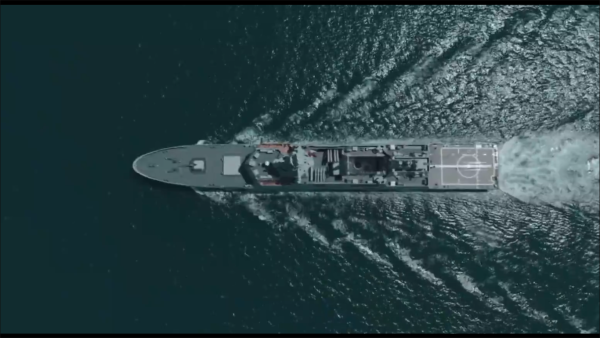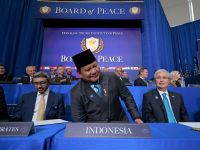ALBAWABA - With naval might as a major component of its regional policy, Turkey is once again demonstrating its might at sea, fifty years after its military intervention in Cyprus. What started out as a force mainly responsible for protecting the straits in 1974 has developed into a tool of influence that spans the Mediterranean, the Aegean, and the Black Sea.
The "Blue Homeland" ideology, which was first proposed in the middle of the 2000s, is the foundation of this expansion. It states that more than 460,000 square kilometers of surrounding waters are vital to Turkey's security and sovereignty. In addition to spurring investments in naval modernization, this ideology has intensified disagreements over offshore gas development and maritime borders with Greece, Cyprus, and their European allies.
When Turkey's fleet conducted simultaneous operations in the Black Sea, the Aegean, and the Mediterranean during the biggest naval exercises in its history in 2019, its aspirations were clearly visible. Many saw the exercise as a sign that Russia was prepared to defend its maritime claims against competing coalitions that were emerging in the area.
By establishing a military facility in Somalia, trying to get port access in Sudan, and bolstering its presence in the Indian Ocean, Ankara has attempted to expand its influence outside of its nearby waterways.
Under President Recep Tayyip Erdoğan, the Turkish Navy has rapidly modernized. With the ability to deploy Bayraktar drones and helicopters, its flagship, the TCG Anadolu, has gone into service as the first drone carrier in history. Modern frigates and corvettes have been constructed by the MILGEM shipbuilding program, and the fleet is expanding with new Type-214 submarines.
Plans are also in place to have a totally indigenous submarine within the next ten years. The TF-2000 destroyer and a new aircraft carrier called MUGEM are planned for the future, which would increase Turkey's military projection even more. In addition, Ankara has turned its shipbuilding sector into a geopolitical instrument and a financial asset by exporting weapons to countries like Pakistan, Ukraine, and Turkmenistan.
Notwithstanding these developments, Turkey's naval ascent remains fraught with difficulties. In a regional conflict, competing coalitions of France, Israel, and Egypt may provide a powerful counterweight, while Greece's geographic advantage in the Aegean limits Turkish naval movement.
Long-distance flights are challenging because to logistical constraints, especially in refueling capacity, and the nation's economic instability raises questions about the viability of such expensive initiatives. However, Turkey's strong reliance on imported energy forces it to gain access to disputed Eastern Mediterranean gas deposits, which exacerbates tensions in the region.
According to analysts, Turkey has already shifted the balance of power in the waters around it and established itself as a vital regional player. Ankara's expanding fleet and strong maritime policy have made it impossible to ignore its aspirations, even though it is still far from becoming a global naval force. They claim that the current issue is not if Turkey has a powerful fleet but rather to what extent it plans to employ it.










